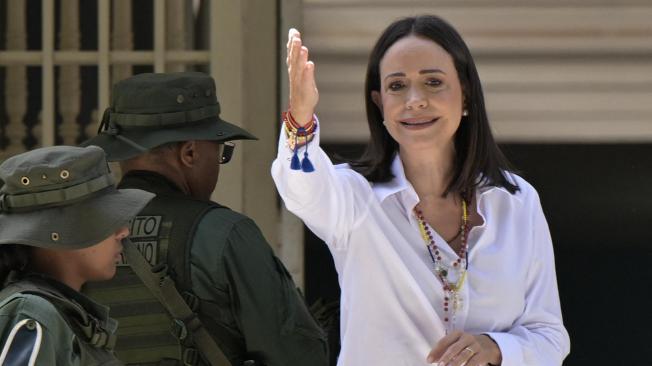The uncertain fate of Edmundo González Urrutia

Amid the political and social situation in Venezuela following the presidential elections, Edmundo González Urrutia, former ambassador to Argentina and critic of the government of Nicolás Maduro, faces an uncertain future.
The recent summons from the Public Prosecutor’s Office (MP) against him has generated concern, according to reports and analysis of national and international media, because it is part of a context of persecution towards those who question the government since July 29.
The 75-year-old opposition presidential candidate did not appear at the three appointments set by the MP this week, which were published on social media by the attorney general, Tarek William Saab, who accuses the opposition candidate of “conspiracy” and “usurpation of functions.”
Added to this, the Maduro’s government blamed the opposition of the blackout that occurred on August 30th and lasted for at least 12 hours. Many consider this accusation to be a strategy to divert attention from the energy and economic crisis that Venezuela is going through.

File photo dated May 18, 2024 of the presidential candidate of the Democratic Unitary Platform (PUD), Edmundo González Urrutia, Photo EFE/ Rayner Pena
Increase in persecutions
Maria Corina Machado, opposition leader and national coordinator of the Vente Venezuela party, has alerted the international community on the arrests and harassment suffered by citizens, media outlets and activists who speak out against the Maduro regime.
Both Machado and Gonzalez Urrutia have reported being the object of threats with alleged arrest warrants from the Venezuelan prosecutor’s office, an organization run by figures loyal to the government.
The persecution of which he is a victim Gonzalez Urrutia It is part of a broader pattern of government repressionwarn human rights organizations.
The NGO Criminal Forum warned on August 30 about a increased repression by Nicolás Maduro’s security officials after the presidential elections.
“Previously, a group of students was arrested to intimidate the student community. A judge was arrested to intimidate a group of judges. Now we see widespread arrests. There is a lot of fear. Public reporting decreases a little every day, because people are afraid to speak, to report (…) this has been a resource that we have always used to get attention to the cases,” explained Alfredo Romero, director of Foro Penal, according to a report by the Argentine newspaper The Nation.

Opposition leader Maria Corina Machado. | Photo: AFP
In recent years, the journalistic guild The report also warned that the Maduro government has stepped up its efforts to silence dissent using techniques ranging from judicial harassment to media censorship and intimidation of reporters and media facilities.
While NGOs such as the International Organization for Migration (IOM) reported a increase in migratory flow in the border areas of Colombia and Brazil following the presidential elections.
Independent journalism needs the support of its readers to continue and ensure that uncomfortable news that they don’t want you to read remains within your reach. Today, with your support, we will continue working hard for censorship-free journalism!
